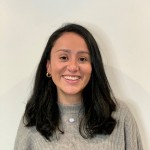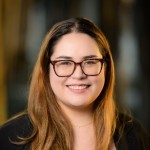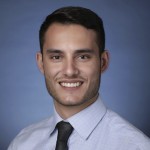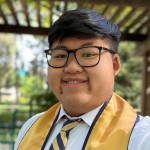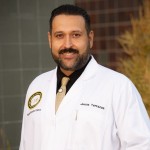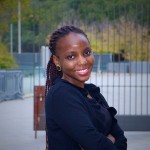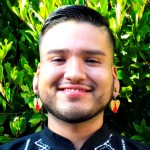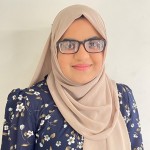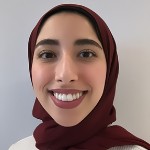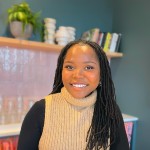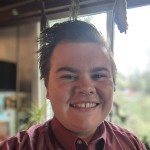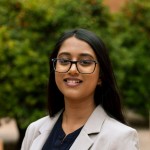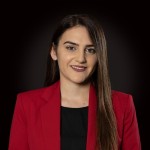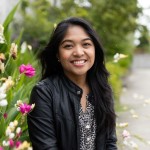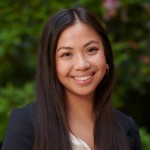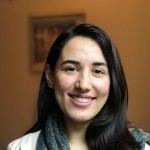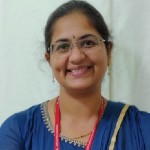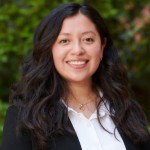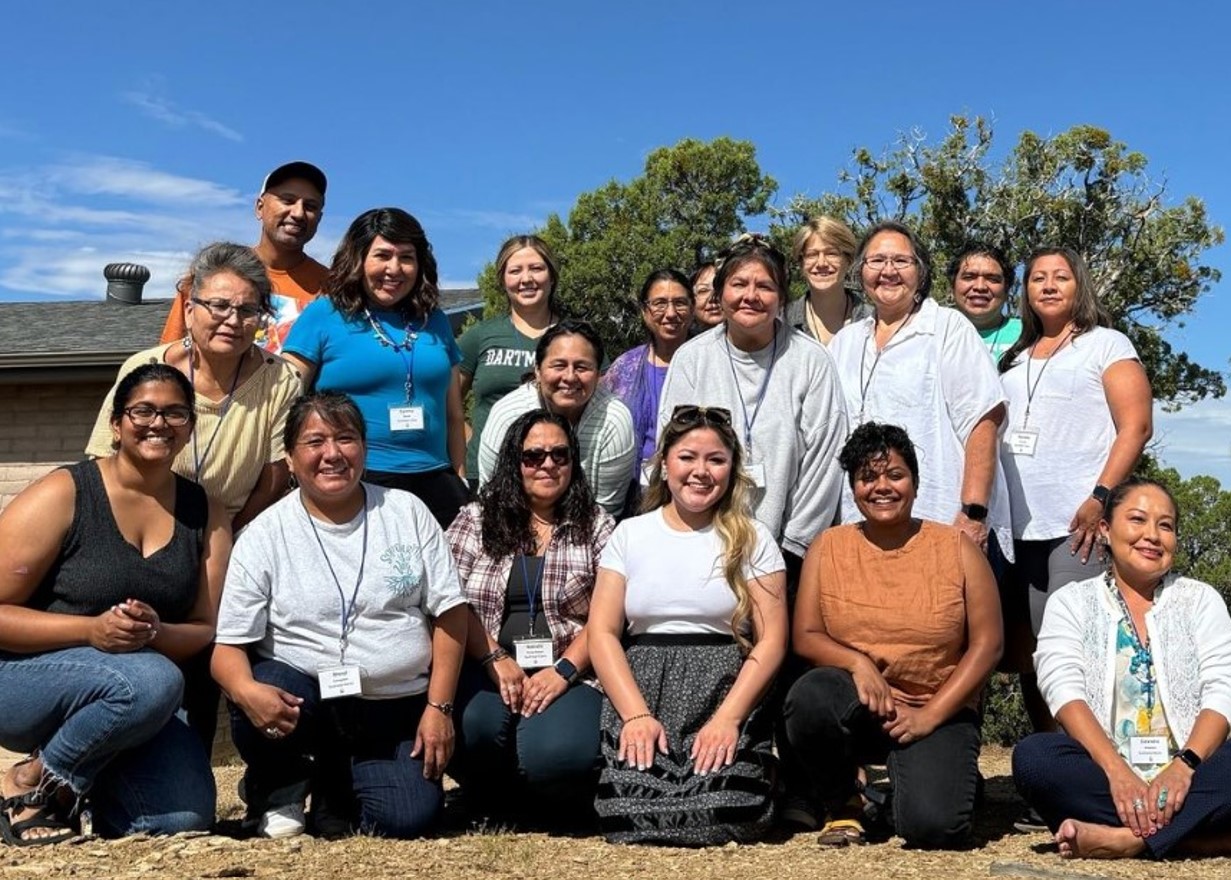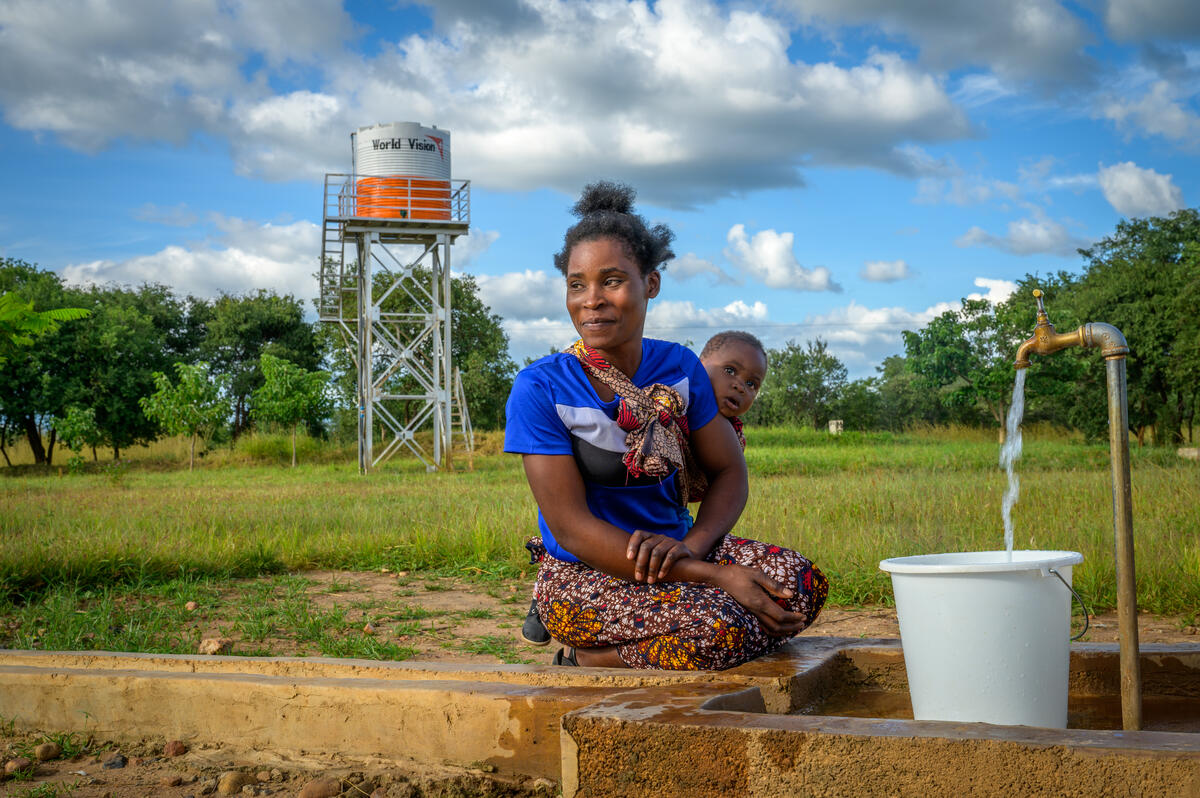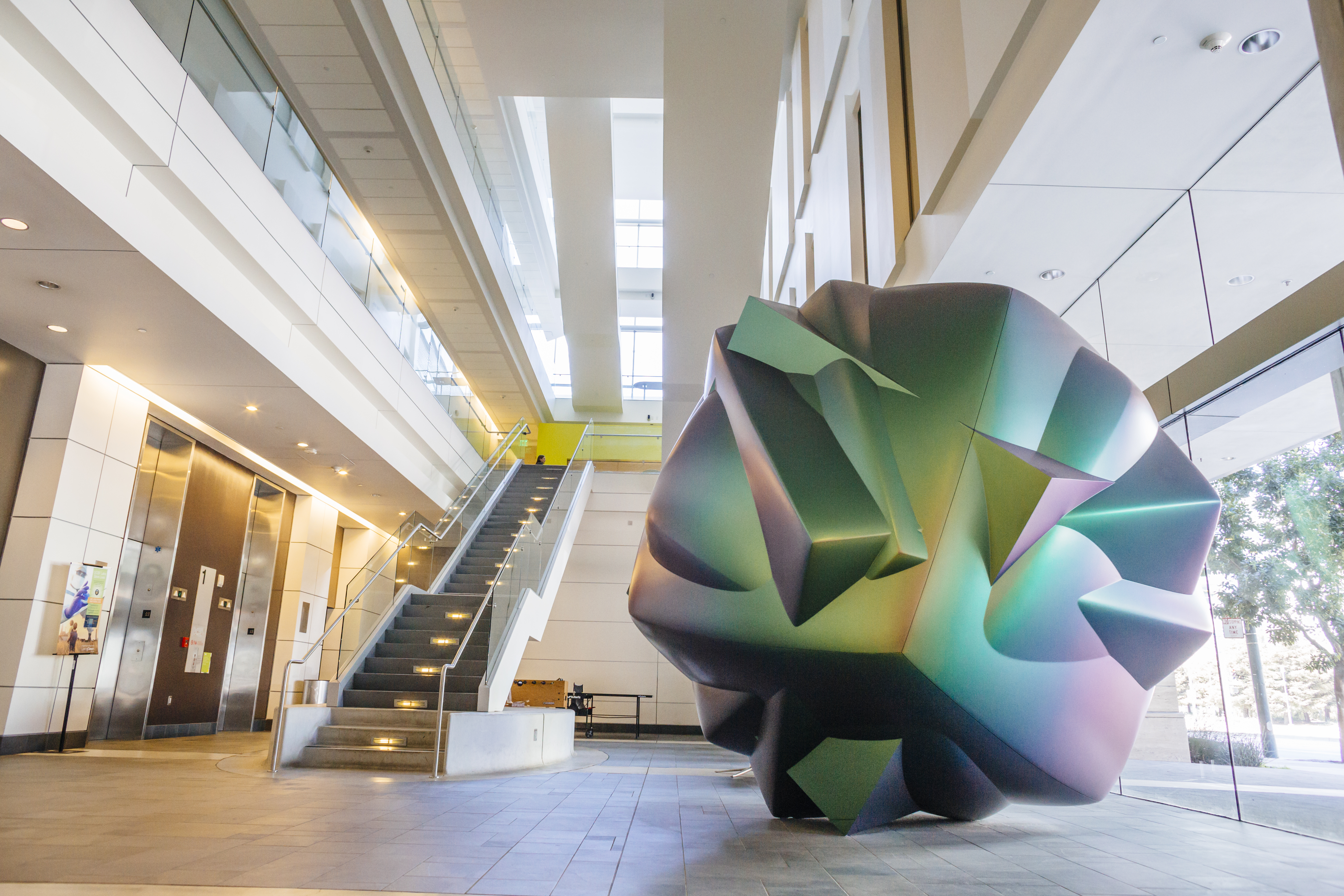
Since its inception, UCGHI has brought together advocates and experts across the UC system in multi-campus Centers and Programs to address complex global health issues.
Explore our Centers, programs and local and global initiatives below, which were all developed by our vision to improve the health of everyone in the world.
Centers
Our Centers develop and lead UC-wide educational programs, targeted collaborative research, and sustainable global partnerships to improve health globally and in California. UCGHI funds each Center for up to three years with the goal that the Center's work will become well known and externally funded.
Center’s strengths lie in their transdisciplinary and community-engaged nature. Each Center conducts significant research that produces high impact and transformational results to address pressing global health issues projects and supports education/training of undergraduate, graduate, professional students and postdoctoral scholars.
Center for Planetary Health
The Center for Planetary Health addresses the looming crisis resulting from the effects of rapidly growing populations, limited food and natural resources, and climate change on land, air, water and life on our planet.
Center for Gender and Health Justice
The Center for Gender and Health Justice (CGHJ) promotes justice and scientific advances to reduce gender and health inequities.
Center for Health Workforce Equity (HEAL Initiative)
The HEAL Initiative trains and transforms healthcare professionals from around the world to provide care for the resource-denied while becoming part of the global movement for health equity.
Programs
Global Health Education
UCGHI supports the next generation of global health leaders by sharing education resources across the UC, institutionalizing courses developed and implemented by UCGHI faculty, including UCGHI signature online courses, making progress towards inclusive and diverse participation in global health education across the UC, and expanding the international audience for UCGHI’s education programs, such as the One Health Workforce Academies.
GloCal Health Fellowship
The UCGHI GloCal Health Fellowship, supported by the NIH’s Fogarty International Center, has helped launch careers for 178 fellows across the UC system and at low- and middle-income (LMIC) partner institutions.
Fellowship in Sustainable Development for HIV Health (SD4H)
The Sustainable Development for HIV Health (SD4H) Fellowship is a career development fellowship that provides aspiring researchers at Maseno University in Western Kenya with outstanding education, mentorship, and training in research at the intersection between sustainable development and health by faculty from Maseno University, Kenya Medical Research Institute (KEMRI) and UCGHI.
Initiatives
Advances in Global Health Journal
In partnership with UC Press, UCGHI developed a new transdisciplinary, open access journal, Advances in Global Health, that showcases the latest research devoted to improving worldwide health outcomes.
NIH Diversity Supplements for Students, Postdocs, and Faculty
UC International Training Council
UC International Training Council (UCITC) is comprised of the principal investigators and program managers that lead global health training programs funded by the National Institute of Health Fogarty International Center focused on training the next generation of scientists from low- and middle-income countries (LMICs)
Archived Programs
The UC Global Health Institute (UCGHI) catalyzes innovation for transformative solutions to global health challenges. The UCGHI Incubator Awards are designed to support teams to develop innovative educational programs.
UCGHI launched a competitive planning grants program to provide 5 to 10 UCGHI Incubator Awards of between $5,000 and $10,000. These grants are designed to stimulate multi-campus and multidisciplinary teams that also include international partners to propose innovative strategies for addressing significant global health challenges.
Learn more about the programs here: From Seed Funding to Global Impact: Three Multi-Campus University of California-Based Initiatives Drive Health Equity
Innovative Educational Programs for 2021-2022:
Food Justice & Health Equity
Our pilot UC-wide center for expertise (COE) will host a Virtual Webinar Series on Food Justice & Health Equity with interviews and discussions from researchers and activists spanning California, USA, Brazil, Caribbean, and Africa. The COE will make transformative shifts to address and resolve systemic racism within global health through a collaborative and co-design process. As an incubator and launchpad, the COE will integrate DEI in UC GHI by linking global health leaders with researchers and communities focused on food security and sovereignty. The Center will provide educational & professional growth at the intersection of race, justice, global health, and food systems.
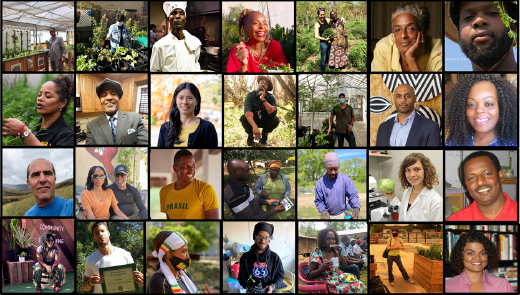
Lead UC Faculty: Carrie Waterman, PhD, Susana Matias, PhD, Amy Rowat, PhD, Hanna Garth, PhD
Participating Institutions/Partners & Topic: UC Partners: Craig Cohen, PhD, Oli Bachi, PhD, CA Partners: Christen Brown, James Brady, Ron Cooper, Kala Washington, Keith Hudson, Kimberly Wright, Edye Kuyper, Cheryl A. Branch, Derrick Chapman, US Partners: Michelle Samuel-Foo, PhD, Dr. Barry Colley, Dr. Usman Adamu, Chef Kabui, DJ CAVEM/Chef Ietef, International Partners: Gaidi Faraj, PhD, Patrick Mbullo, Anthony Akera, Renee Neblett, Rafael Peron Castro, Ryan Smith, Salim Rollins, Bryant Terry, Zion Taddese, Administrative Personnel: Jennifer Bañuelo
Global Health and Human Rights
UCSF’s Health and Human Rights Initiative strives to develop a UC-wide center of expertise (COE) for global health and human rights. Leveraging decades of expertise in healthcare, forensic asylum evaluations, mental health, immigration policy, and research, the COE aims to 1) build a pipeline of master clinicians trained to perform medical and psychological forensic evaluations of human rights violations in adults and children, 2) contribute to the limited body of research on this demographic, and 3) use such research to inform policy and advocacy efforts that are intended to improve the lives of migrating populations.
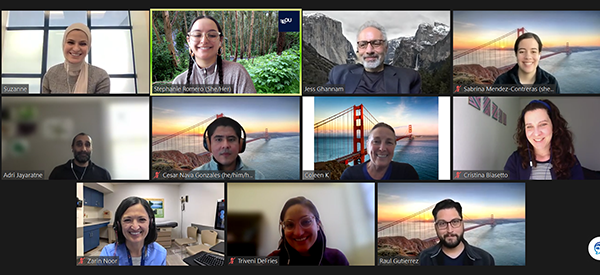
The Health and Human Rights Initiative Leadership Team: Coleen Kivlahan, MD, MSPH, Jess Ghannam, PhD, Suzanne Barakat, MD, J. Raul Gutierrez, MD, Cristina Biasetto, LCSW, William Martinez, PhD, Triveni DeFries, MD, MPH, Zarin Noor, MD, MPH, Stephanie Romero, MPA
Perioperative and Surgical Health Equity
Surgical conditions account for 30% of the global burden of disease, but in 2021, surgical and anesthesia care remain an under-supported element of the achievement of Universal Health Coverage.
The Perioperative and Surgical Health Equity Center of Expertise unites 8 UC campuses and their partners to advance equity in surgery, anesthesia, and perioperative care through ethical and innovative research, education, and community engagement. By leveraging the expertise of the UC system and its global network, the Center of Expertise will facilitate multi-directional exchange; train leading researchers and change agents; and engage in research and partnerships that center community and patient perspectives.
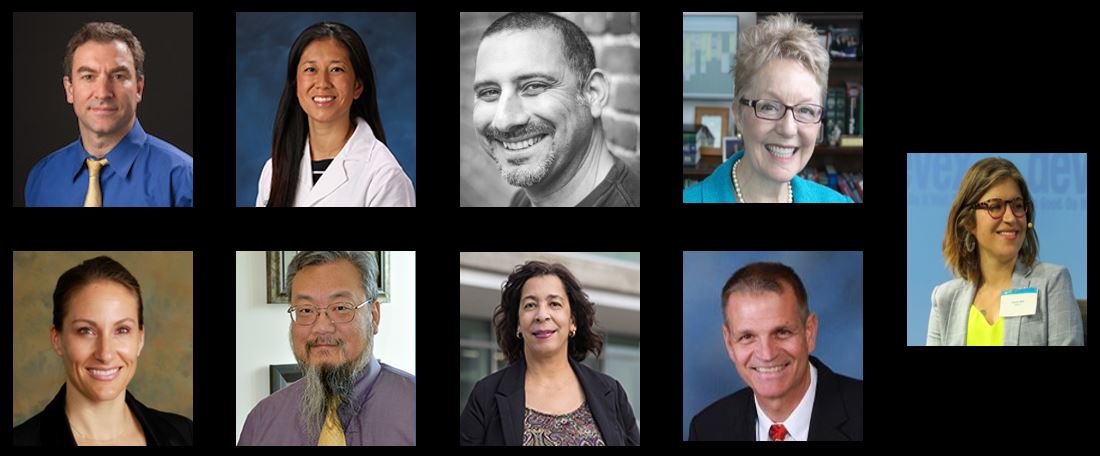
Team: Doruk Ozgediz, MD, MSc, Theresa Chin, MD, Jason Corburn PhD, MCP, Diana Farmer, MD, Catherine Juillard, MD, MPH, David Lo, MD, PhD, Thelma Hurd, MD, MPH, Stephen Bickler, MD, Lauren Wall
Accelerating Implementation Science and Research Translation for Global Health Delivery and Diplomacy
UC has an astounding breadth and depth of research and knowledge innovations around implementation science, economics, and global health policy spanning many disciplines. Our collective potential to provide trans-disciplinary research and technical expertise to partners outside of academia to influence global health delivery and diplomacy is unmatched. The aim of this collaboration is to explore how we might develop a service/knowledge hub that will accelerate system-wide efforts to facilitate knowledge exchange, build UC-wide capacity for policy-engaged research, accelerate the research-to-use pathway, foster trans-disciplinary research collaborations, and increase global policy dialogue.
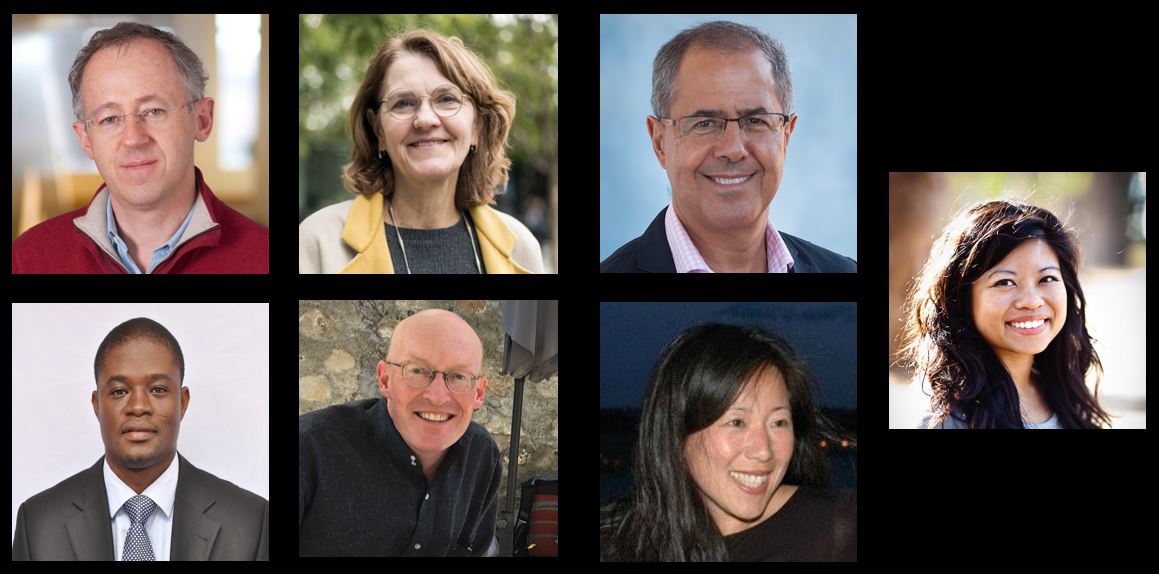
Team: Stefano Bertozzi, MD, PhD, Dilys Walker, MD, Rafael Fernández de Castro, PhD, Amos Laar, PhD, MPH, MA, Matt Sparke, PhD, MA, Hannah Park, Hildy Fong Baker
Advancing Research and Education Efforts to Decolonize Global Health Across all UC Campuses
There has been significant but underappreciated discontent among public global health practitioners in low- and middle-income over the discriminatory activities of funding agencies, universities, and individuals from high-income countries for centuries. There have been recent calls for the decolonization of global health, and the re-examination of assumptions and practices underpinning global health partnerships. This 12-month initiative with two inter-linked paths (Research and Education) will support and promulgate cross-campus efforts to build a Center of Excellence Focused on Global Health Equity.
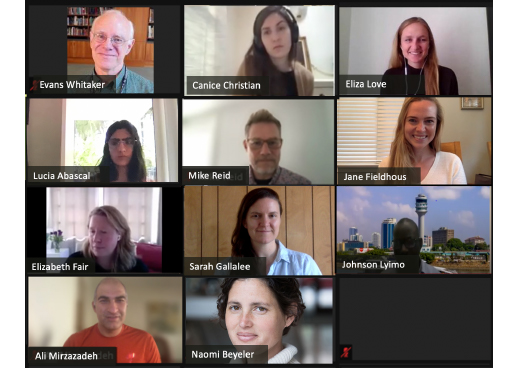
Research path team: Elizabeth Fair (lead), Ali Mirzazadeh (co-lead), Lucia Abascal, Canice Christian, Jane Fieldhouse, Sarah Gallalee, Johnson Lyimo, Evans Whitaker
Education path team: Mike Reid (lead), Eliza Love, Naomi Beyeler
Community-University Partnership to Develop Cultural Humility Training for Researchers and Health Providers
COVID-19 and continued assaults on BIPOC communities have magnified gaps in public health infrastructure and exacerbated the inequities that disproportionately affect vulnerable populations. For researchers and practitioners, implicit bias training and community-based participatory research can be effective at reducing discriminatory behaviors and connecting with communities as partners to address health issues. However, to be maximally impactful, we need to be sensitive to the lived reality of members of affected communities and be equipped with skills to deliver trauma-informed care and practice founded on principles of cultural humility. This community-academic partnership will develop a training program that reduces the risk of perpetuating implicit biases and avoids amplifying the structural inequities that undermine current public efforts.
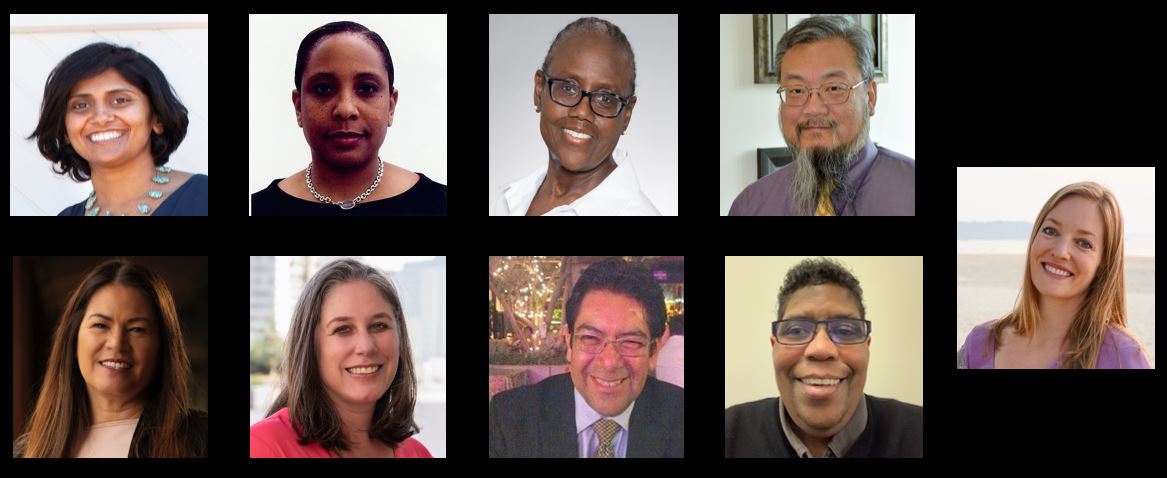
Faculty Leads: Madhavi Dandu, MD, MPH, Kelly Taylor, PhD, MPH
Faculty Partners/Leads–UC and HBCU: Cynthia Davis, MPH, DHL, David D. Lo, MD PhD, Juliet McMullin, PhD, Shira Shafir, PhD, MPH
Community Partners: Gerry Balcazar, Schon Wade, EdD, Miranda Westfall, PhD(c), MPH, RD
Latin American Pandemic Coalition (LAPC)
The Latin American Pandemic Coalition (LAPC) seeks to create a Latin America focused learning collaborative for pandemic preparedness and response. The Coalition will forge deeper connections between UC researchers and Latin American partners. We aim to champion 5 streams of collaborative work including: 1) public and clinical health workforce development; 2) supporting evidence to action policy initiatives throughout Latin America; 3) coordinate and foster research partnerships that advise decision makers of localized strategies to mitigate the pandemic; 4) create a learning collaborative and community of practice for partners and UC collaborators to learn from and champion each other’s work and through these work streams 5) support faculty development to foster talent that will be well poised to address the next pandemic.
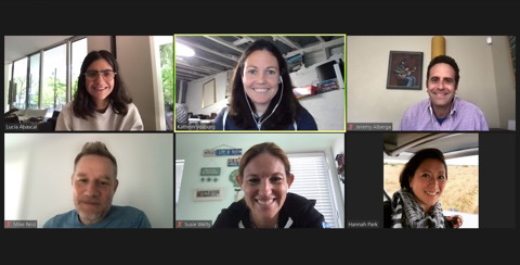
Latin American Pandemic Coalition team(left to right): Top Row-Lucia Abascal Miguel, Katy Vosburg, Jeremy Alberga; Bottom Row-Mike Reid, Susie Welty, Hannah Park. Not pictured: Kelly Sanders, Evelyn Wong, Alina Dorian and Mike Prelip
The UC Global Health Institute is committed to supporting current University of California master’s students from historically excluded communities with a $5000 research award to support their graduate projects. Research projects that are transdisciplinary with respect to local or global health OR focused on diversity, equity, inclusion, and justice in local or global health received the highest preference. UCGHI strives to diversify the global health workforce by providing supplemental funding opportunities for master’s level students from historically excluded communities such as BIPOC students and First-Generation students.
2023 Award Recipients
Adriana Solis
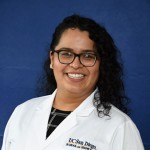
UC San Diego Adriana Solis is a first-generation student from Santa Ana, CA who graduated with her B.S. in Mechanical Engineering from UC San Diego. After working in the aerospace industry as a Mechanical Engineer, Adriana shifted her focus to pursue Medicine when she acknowledged that the lack of Latine physicians in her community was negatively affecting the health of those around her. As a medical student at the UCSD School of Medicine she continues to fight and advocate for those who are first-generation pre-med students and undocumented, underinsured patients through her involvement with LMSA. As a PRIME-Health Equity scholar and current MPH student Adriana is eager to further her understanding of public health, policy, and behavior as she aims to identify disparities in health treatment based on race/ethnicity, SES and primary language spoken. In her spare time, she enjoys hosting friends to monthly dinners, watching Korean dramas, and dancing. |
|
UC Berkeley I am currently a second-year global health and environment MPH candidate at the University of California, Berkeley (graduation expected in May 2023). I am coming to this project with a background in Science, Technology, Engineering and Math (STEM), environmental engineering, and some public health experience. Before Berkeley, I lived in Bogota, Colombia working at the intersection of environmental engineering, epidemiology, and global health. My time in Bogota allowed me to engage in water governance work, environmental epidemiology projects, and mHealth related research. While at Berkeley, I have worked as an EHS graduate student instructor and an EPI student researcher. I spent my summer in northern Tanzania conducting field and office work with Health for a Prosperous Nation as part of a UC sexual reproductive health study. |
|
UC Santa Cruz I am a first generation college student pursuing a Masters of Science in Environmental Toxicology and Microbiology at UCSC, studying therapeutic approaches for treating manganese neurotoxicity. Previous to pursuing my undergraduate career I spent 4 years in the U.S. Air Force as a lead neurosurgery technician. Afterwards, I transferred to UCSC to finish my undergraduate degree, volunteering as a researcher for the Smith Lab. Based on that experience, I was hired as a research staff after graduation, running a behavioral study in rodents to understand how developmental manganese exposure leads to attentional dysfunction, and whether therapeutic agents used to treat ADHD are efficacious in treating the dysfunction. Outside of my research, I am involved in UCSC’s WiSE club as a liaison officer, a domestic violence volunteer for Walnut Avenue Family & Women’s Center, and have joined a local rock climbing gym. |
|
UCSF I am a current global health master’s student of the University of California, San Francisco’s Institute of Global Health Sciences with a bachelors of science in biology from the University of San Carlos. My capstone for this program focuses on providers’ perceived barriers and facilitators to achieving viral load suppression for treatment-experienced HIV/AIDS patients in the Philippines. As a local of both California and Cebu City, Philippines, I aim to be a bridge for ideas and make both homes better environments for my communities through community-led health initiatives and being an active practitioner of cultural humility. |
|
UCSF I am an emergency medicine research fellow at the University of California San Francisco (UCSF) through the National Clinician Scholars Program (NCSP). I have worked in several global contexts including Central America, South America, and East Africa. In 2017, I completed a Doris Duke International Clinical Research Fellowship in Argentina. My international experiences have taught me to be resilient and flexible in the face of unexpected challenges, and how to improvise solutions to novel problems. My research has focused on using the emergency department as a setting to deliver public health services to underserved populations, in both domestic and international settings. I am currently pursuing a Master’s Degree in Clinical and Epidemiological Research, which I hope will give me a robust understanding of methodological design and biostatistics. My long-term career goal is become an independently-funded, emergency medicine physician investigator. |
|
UC Davis I am a first-generation student in the MPH program at UC Davis. Currently, I am interested in improving health communication and education, especially in the context of global health and communicable disease threats. I have a lot of experience working with under-served communities abroad from my time as an undergraduate. From these international volunteer trips, I have learned about the importance of taking a holistic approach to health and the need to approach problems, as a team, to overcome health disparities. When the pandemic hit, it made me reflect on a lot of the passion I had brought, working with community leaders to empower their communities; it made me realize the similar struggles that my deaf, immigrant parents had to go through. It was this realization that made me want to go into public health and work to empower those facing cultural and linguistic barriers to health. |
|
Charles Drew University My name is Jesus Terrazas, I am a first-generation American citizen and University graduate, son of two Mexican immigrants. I worked as a truck driver for almost 20 years prior to completing my degrees at East L.A. College Community College (ELAC). I graduated from E.L.A.C with honors in 2016 with 4 Associate Degrees, graduated in the Spring of 2022 Summa Cum Lade from Charles R. Drew University with a BS in Biomedical Sciences. Currently a student of an (MS) of Biomedical Sciences program, pursuing a MD/PhD candidacy. Stem Cell Research and the delivery of stem cell therapies are my interest and goals. I just started my 2nd year as a STEMM Instructor with the University, helping provide a more balanced exposure to all inner-city students that find an interest in science, helping them nurture that passion, giving them a fair shot of also pursuing their educational/career dreams. |
|
UC Berkeley My name is Zora Joy Nakato from Uganda. I received my undergraduate degree in Mathematics from Makerere University. I am currently a first year student in the MA, Biostatistics program at the School of Public Health, UC Berkeley. My most recent professional experience was working as a Data Officer for the Uganda Virus Research Institute’s IAVI HIV Vaccine Program. My research interests include precision public health, disease modeling, application of machine learning methods in analysis of Electronic Health records, clinical trials design, Reproductive Health Care, and cancer research. My hobbies include cooking, singing, traveling, and hiking. |
|
UCLA Juan was born and raised in East Los Angeles California. They are a proud product of community college with hopes of completing a Ph.D. and pursuing a career in academic research. Their areas of interest include HIV, LGBTQ+ health, Harm Reduction, and Carcerality. They currently serve as a graduate student researcher with the UCLA Labor Center working on the California Cannabis Equity initiative which is the first statewide survey looking at the working conditions of individuals in the cannabis industry. Juan strongly believes in the power of mentorship and hopes to serve as a resource to other first-generation underrepresented students who often struggle to see themselves within academia. They are a strong supporter of grassroots organizing and are constantly trying to improve their pedagogy. For self-care, Juan enjoys traveling and trying new restaurants. They are currently on a mission to try every taco stand in East LA. |
|
UC Davis I was born in Pakistan and migrated to the US with my family at the age of 14 years old to pursue higher education. I witnessed the impact of health disparities and barriers to healthcare in my own family and minority community, which motivated me to volunteer at Shifa Community Clinic to serve the underserved population. I became very interested in how culturally competent care without linguistic barriers can aid in disease prevention and better health outcomes in minority populations. As a woman of color and a first-generation college graduate, I am pursuing an MPH degree to understand the healthcare field better to improve health access for my patients in the future. I hope to be part of the next generation of physicians who encompass the fresh perspectives and diversity that is currently missing. UCGHI grant will help me complete my MPH program requirement and give back to my community. |
|
UCSF Maha Zubaidi is a student of the IGHS MS program as well as Stanford University School of Medicine. Born into a Palestinian and Lebanese family, she spent her adolescent years in Qatar before obtaining a bachelor’s degree in Physiology and Neuroscience from UCSD. During her time in San Diego, Maha spent time with the Syrian refugee community through involvement with the Arab Youth Collective. In her gap year before attending medical school, Maha was able to explore her passion for refugee health and developed a particular interest in mental health. She also was able to visit her country of origin, Palestine, for the first time. These experiences led her to pursue a Master’s of Science in Global Health at UCSF between her third and fourth years of medical training. Maha’s goal is to use innovative community based participatory research methods to amplify the needs and voices of Palestinian people |
|
UC Berkeley My name is Mariah. I am a second-year Master’s of Public Health student at the University of California, Berkeley, concentrating in Maternal, Child and Adolescent Health. I am passionate about creating a future where the wellness of birthing individuals is of utmost importance, and women’s health is abundantly funded and supported in society. Currently, my interests revolve around the health of Black pregnant people in the United States, and how our collective past and shared experiences today continue to impact our birth experiences. I couple my extensive background in global health with current research in domestic maternal health to stimulate systems-level change in health infrastructure. I enjoy working and learning in dynamic, multi-disciplinary environments that are at the cutting edge of research in public health. |
|
UC Davis Peter grew up on a small farm in northern Idaho, where he found early inspiration in his parent’s passion for sustainability and local agriculture, as well as exposures to diverse cultures. This inspiration led him to study International Studies and Physics at the University of Idaho. After college, Peter worked as an agriculture extensionist for three years in rural Togo through Peace Corps. His work focused on training small-scale farmers on improved techniques for sustainable agriculture. Upon returning to America, Peter worked in food insecurity outreach through AmeriCorps VISTA, helping increase the capacity of local organizations to serve food deserts in Fargo, North Dakota. As a master’s student in International Agricultural Development at UC Davis, Peter focuses on how participatory extension can improve health and productivity of smallholder livestock in the Global South. His current research focuses on analyzing stakeholder perceptions of animal disease and vaccination in Sierra Leone. |
|
UCLA Hailing from a small town in the San Joaquin Valley, Preeti Juturu is a graduate student at the UCLA Fielding School of Public Health completing their M.S. in Community Health Sciences. Dedicated to understanding the health needs and inequities experienced by BIPOC, immigrant, disabled, low-income and queer communities within the United States, Juturu's work is multidisciplinary in nature, addressing structural barriers, sociocultural identities, and health disparities. Specifically, Juturu seeks to understand the ways in which social, cultural, built, and natural environments influence health outcomes from a mixed-methods and community-engaged perspective, with the overarching goal of using research to empower communities and inform policy change. |
|
UC San Diego Rawnaq Behnam is a MPH candidate and the diversity fellowship recipient at the Herbert Wertheim School of Public Health. She completed her undergraduate degree at UC San Diego in global health and human rights and migration. Rawnaq grew up in Iraq and was displaced due to the ongoing civil unrest with her family to Turkey then the United States. Using her own and her family’s lived experience of displacement, Rawnaq wants to build the evidence on interventions and policy solutions that could improve the health and well-being of refugees in San Diego and globally. She has a particular interest in sexual and reproductive health research and aspires to be a future physician caring for her community and applying a culturally-competent lens to delivering public health and clinical care for displaced individuals |
|
UC Berkeley Rushlenne Pascual is a 2nd-year Infectious Diseases and Vaccinology MPH student at the UC Berkeley School of Public Health. She was born and raised in Seattle and received her BS in Microbiology and BA in Public Health from the University of Washington. Rushlenne previously worked as a Research Scientist at the UW Neisseria Reference Laboratory, helping with Centers for Disease Control and Prevention projects to enhance domestic gonorrhea surveillance and stop the spread of drug-resistant infections. She currently works with Dr. Filipa Rijo-Ferreira to study circadian rhythms of parasitic infections, specifically those of Plasmodium species that cause malaria, and how rhythms in both the parasite and host interface to cause disease. While Rushlenne is fascinated by all things related to infectious diseases, she also enjoys hiking and rock climbing. Her free time is usually spent playing tennis, exploring new dessert places with friends, and being an enthusiastic plant parent. |
|
UCLA Samantha (Sam) Macam is a dual Masters of Public Health and Social Welfare candidate at UCLA. As a first-generation college student and daughter of Filipino immigrants, Sam faced many barriers to taking advantage of research opportunities as an undergraduate. Her and her family’s lived experiences with the legal system, intergenerational trauma, and mental health and addiction issues, ground her research endeavors and commitment to social justice and health equity. Her work emphasizes the importance of equitable support and resources for historically marginalized and disenfranchised communities. After graduating, Sam plans to become an LCSW providing mental health services to children, adolescents and their families to support their potential to thrive. This work is also being supported by: Miranda Velasquez, MSW student with lived experience on the impact of community gang violence; Claire Amabile, MPH-MSW candidate who has worked closely with the Coalition for Engaged Education for the past year and has extensive qualitative research experience with UC Speaks Up; and Shannon Dunlap, our MSW capstone mentor. |
|
UCSF Sima Naderi is currently a master’s student in the Institute for Global Health Science at UCSF. She completed her undergraduate and master’s in public health at Kabul Medical University (KMU) in Afghanistan. Until 2022, she was an assistant professor at the Department of Epidemiology and Biostatistics, KMU. She also worked at the Afghanistan vice president`s office as the senior data scientist. Her work with UCSF started in early 2021 when she joined the International Traineeships in AIDS Prevention Studies program (ITAPS). Her research area includes maternal and reproductive health and barriers to accessing health services among Afghan populations. She was a co-investigator in several studies jointly conducted by Kabul Medical University, the University of British Columbia, and Can-Health International in Afghanistan. |
|
UC Berkeley Dr. Suvarna Kantipudi is the recipient of the Morris Global Health Fellowship from the University of California, Berkeley. She underwent training on Psychiatric Research infrastructure for implementation and intervention (PRIIA) from the University of Pittsburgh as a part of a collaborative National Institute of Health (NIH) grant with India in 2021. In October 2019, she was given an early career psychiatrist award by the World Association of Social Psychiatry and received an international travel grant to attend the World Congress of Social Psychiatry conference in Bucharest, Romania. In 2018, she received an Indian Psychiatric society travel fellowship, a competitive award given to young psychiatrists to receive advanced training in their field of interest. She consistently stood as the best outgoing student from Christian Medical College Vellore during her postgraduate course of Diploma in Psychological Medicine (Florence Nichols Prize-2012) and MD in Psychiatry (Dr. Rose Chacko Prize-2014). She is currently working on evaluating the impact of household air pollution on the neurodevelopmental outcomes of children in India. |
|
UCLA Virginia Reyes is a second-year Masters in Public Health student in the Community Health Sciences department at the UCLA Fielding School of Public Health. A first-generation college graduate, she earned her bachelor's degree in Sociology from UC Berkeley with minors in Global Public Health and Public Policy in 2018. Virginia is passionate about health and food equity in many different capacities. Her previous work/volunteer experience includes CalFresh/Medi-Cal enrollment, maternal and child health education, and community outreach for unhoused individuals. Upon graduation, Virginia hopes to work in the public or non-profit sector to help integrate healthcare and nutrition services so as to address health inequities through research and policy work. |
The UCGHI Advocacy Initiative trained UC students and faculty in political advocacy to increase federal funding for global health issues. Student advocates from across the UC system lead efforts on their respective campuses by collaborating with faculty, campus global health groups, and with each other to build system-wide momentum in support of global health. The initiative helped insure that student, faculty, and community voices were heard in California and in Washington, D.C. by coordinating campus events and outreach to members of Congress and other elected officials. UCGHI AI is partnered with Kyle House Group (KHG), a DC-based international advocacy and government relations consulting firm, to learn about and implement an advocacy strategy tailored to UCGHI's focus areas — Planetary Health and Gender and Health Justice.
Advocacy Resources
UCGHI's Global Health Advocacy Guide
Advocacy Engagement: Social Media Tips
University of California Digital Advocacy Guide
Advocacy Action Guide: A ToolKit for Strategic Policy Advocacy Campaigns
Notable Publications
“I Have Moments Where I Am Down, But It Has Made Me Resilient”: Mental Health Strengths Among Youth At-Risk for and Living with HIV , Center for Gender and Health Justice, 2024
Water, sanitation and hygiene insecurity predict abscess incidence among people who inject drugs in a binational US–Mexico metropolitan area: A longitudinal cohort study , Planetary Health, 2024
Pricing of medication abortion in the United States 2021-2023 , Center for Gender and Health Justice, 2024

